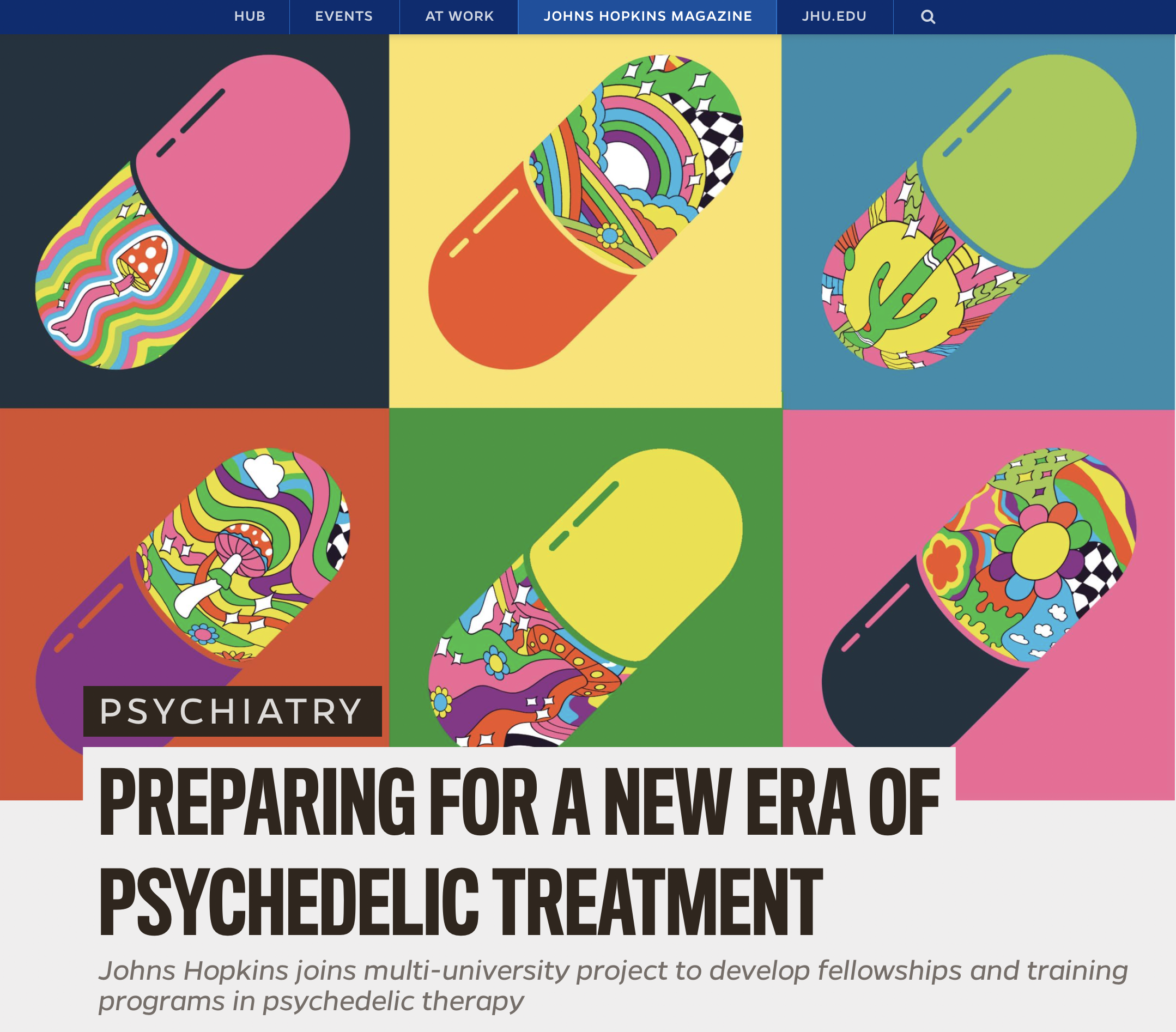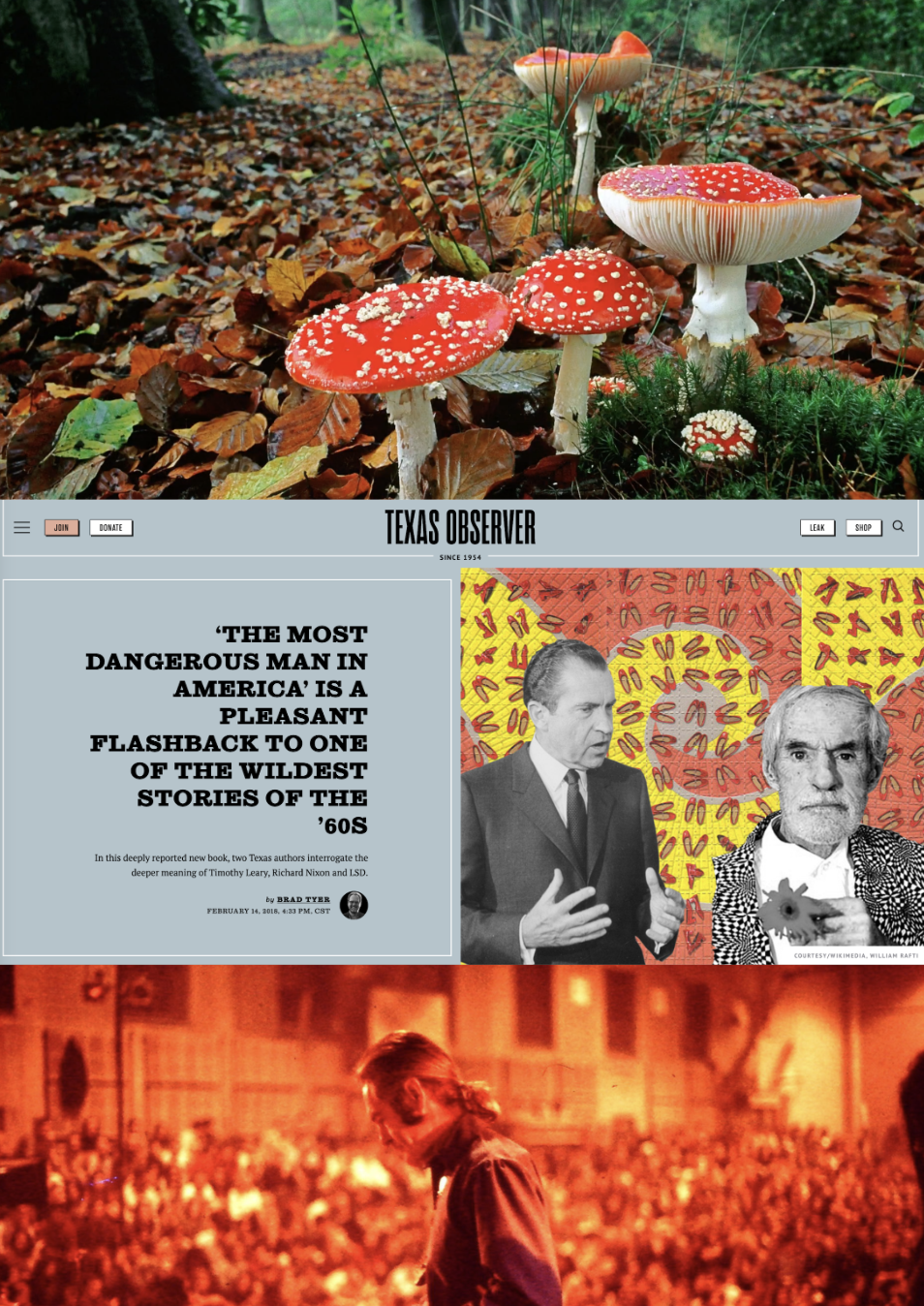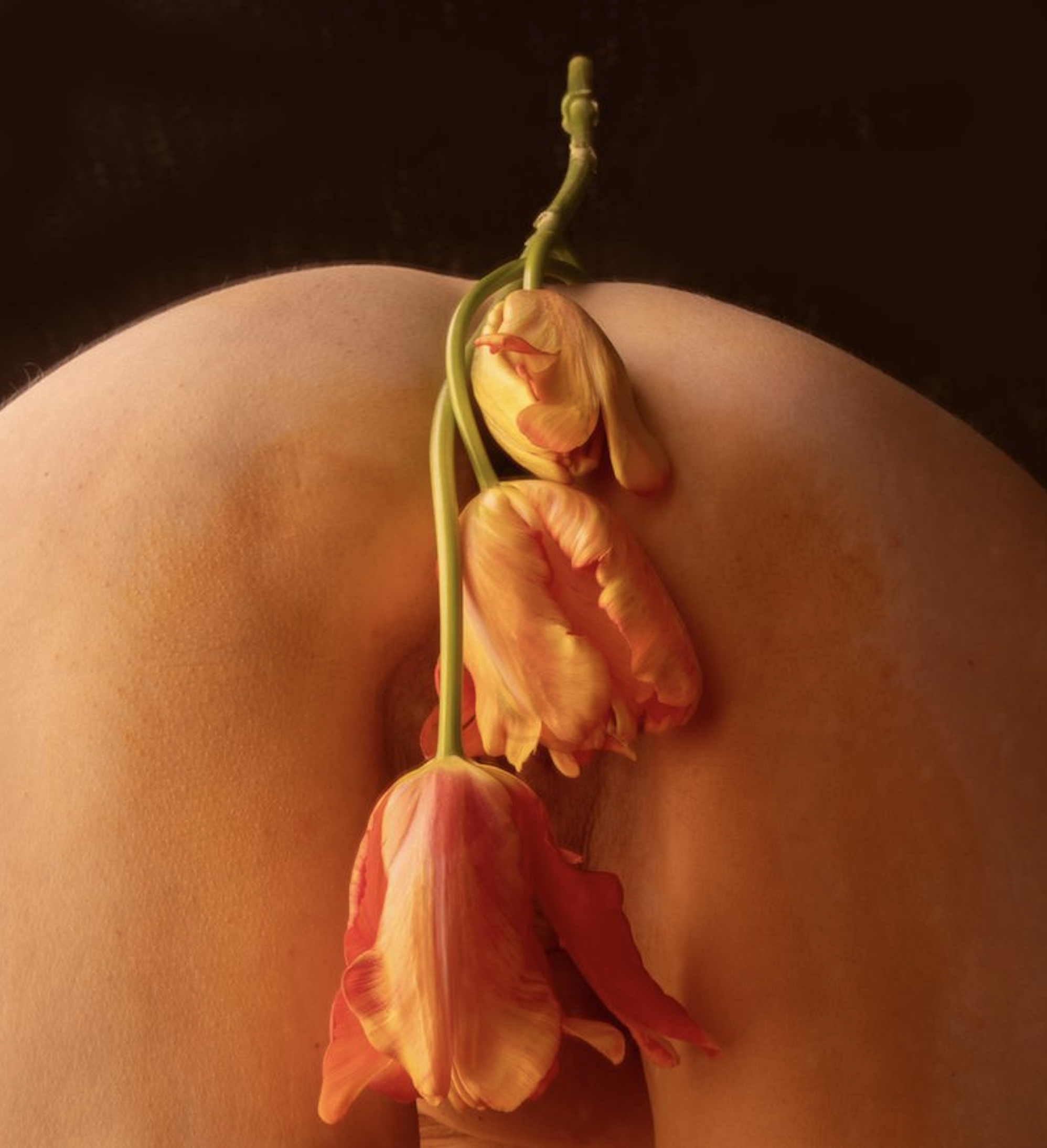Unraveling the Mysteries of Psilocybin Mushrooms: An Exploration of Their Uses and Potential Benefits
/The World of Psilocybin 50 Years Later
The world of psychedelics is commanding major headlines today, and psilocybin is center stage.
After decades of legally-induced dormancy, researchers who have been committed to psychedelics for decades are suddenly no longer shunned. For young scientists, a new lens through which to study human suffering and our existential dilemmas is an exciting frontier of groundbreaking research.
Psilocybin offers medical researchers, clinical patients in countless new research studies and armchair researchers like AOC thought-provoking opportunities for learning about the world of psychedelics and their important place in the evolution of human civilizations.
Once again scientists are exploring human consciousness on a universal scale. Empathetic researchers are developing new therapies and treatments for a vast portfolio of physical and psychological human sufferings that include imminent death, often caused by a deadly illness and brain-numbing pain.
The same cannot be said about 1970s investigations into psilocybin, a naturally occurring psychedelic compound found in more than 200 species of mushrooms or shrooms as we like to call them.
The Nixon Administration Crackdown
Much vital research into the world of mushrooms and psychedelics was aborted by their 1970s reclassification by the US federal government as dangerous drugs. Many of us know that LSD became illegal, but numerous other lab compounds and natural compounds like psilocybin were banned, as if they represented a plague on humankind.
Other nations in the world also joined the drive to shut down valuable scientific research into natural and lab-generated psychedelics — agreeing with America that they were a threat to world order. Psilocybin represented a severe and addictive danger that was impossible for humans to manage responsibly warned elected officials.
The general belief was that psychedelics were somehow newly-discovered and rooted in left-wing, hippie cultures around the world.
The exact opposite is true. Psychedelics in the form of magic mushrooms — and especially psilocybin — have existed with worldwide use for thousands of years.
Psychedelics and Western Civilization
Ancient Greeks and Egyptians understood well the powers of psychedelics including magic mushrooms in their mental states. Mushrooms are found on art throughout the region, on frescoes and pillars. The Greek drink Kykeon is well established in Greek literature as made from simple ingredients like milk and honey but also psychedelic plants.
Plato and Aristotle used psilocybin. There is strong evidence that early Western civilization and the Abrahamic religions were created in cultures rich with magic mushrooms as a medium for experiencing and communicating with the divine.
The more we know about the use of psilocybin in the ancient world, the more confounding it is to understand the world’s most prominent universities and government-owned science labs shutting down all research into psychedelic mushrooms 3000 years later.
What was Nixon afraid of?
Mind-Altering Drugs Wage Battle Against Extreme Human Suffering
Psilocybin in particular has recently gained recognition for its potential to help people with mental health issues, including depression, anxiety, and addiction. In addition, it has also been studied for its potential to improve creativity, enhance spiritual experiences, and even extend life expectancy.
‘How To Change Your Mind’
If you are not familiar with this exploding field of medical research around psychedelics, a good starting off point is Michael Pollan chronicles in his 2018 best seller ‘How to Change Your Mind’. Pollan had not taken LSD or any other psychedelic drug before he launched his investigation into psilocybin and psychedelics to write his book.
Pollan’s book was made into a series by Netflix, and AOC has watched it beginning to end.
Health Benefits of Non-Addicting Psilocybin
Psilocybin is one of the many psychedelic compounds found in shrooms. Others include LSD, mescaline, and DMT. These compounds have been used for centuries for their psychological effects, including a profound alteration of one’s state of consciousness.
These drugs are not addictive, unlike the majority of drugs ravaging America today. Psychedelics are increasingly being used to treat other drug-related addictions, where the failure rates are extraordinarily high.
Recently, studies have been conducted to determine if these compounds have any therapeutic benefits. The results of these studies have shown a great potential for magic mushrooms and other psychedelics to be used as adjunct therapy in treating mental health issues such as depression, anxiety, and addiction. They have also shown that they can be useful in treating existential distress, existential anxiety, and anhedonia.
Moreover, psilocybin has been found to help with smoking cessation, obsessive-compulsive disorder, and symptoms of cluster headaches. In addition to these health benefits, psychedelics have also shown the potential to help people recover from trauma, deal with terminal illnesses, and change the way we perceive the world. There is no doubt that psychedelics have a lot to offer.
Leading psychopharmacologist Roland Griffiths discloses the ways that psychedelic drugs can be used to create spiritually meaningful, personally transformative experiences for all patients, especially the terminally ill. Roland Griffiths, Ph.D., is Professor in the Departments of Psychiatry and Neurosciences at the Johns Hopkins University School of Medicine.
Psilocybin and Mental Health
Psychedelics have been found to be beneficial in treating mental health issues such as depression and anxiety. Depression is a common mood disorder characterized by feelings of sadness, hopelessness, and loss of interest in daily activities. It affects all demographics, with about 1 in 10 people experiencing a depressive episode during their lifetime. Many clinical trials have concluded that psilocybin is an effective antidepressant. Additionally, it does not have the side effects of other antidepressants such as SSRIs (selective serotonin reuptake inhibitors) such as serotonin syndrome, sexual dysfunction, and weight gain. Similarly, anxiety disorders are the most common mental illnesses in the United States.
It is estimated that approximately 40 million American adults experience an anxiety disorder every year. Shrooms have been found to be effective in treating anxiety disorders such as Post Traumatic Stress Disorder (PTSD) and General Anxiety Disorder (GAD). Furthermore, it has also been shown to be helpful in treating Obsessive Compulsive Disorder (OCD) and Obsessive Compulsive Hoarding Disorder (OCHD).
A New Understanding documentary explores the treatment of end-of-life anxiety in terminally ill cancer patients using psilocybin, a psychoactive compound found in some mushrooms, to facilitate deeply spiritual experiences. The documentary explores the confluence of science and spirituality in the first psychedelic research studies since the 1970s with terminally ill patients. As a society we devote a great deal of attention to treating cancer, but very little to treating the human being who is dying of cancer. The recent resurgence of psychedelic research is once again revealing the power of compounds like psilocybin to profoundly alter our understanding of both life and death. Through the eyes of patients, their loved ones, therapists, and researchers, A New Understanding examines the use of psilocybin in a controlled setting to reduce psychospiritual anxiety, depression, and physical pain. The treatment aims to help the patient understand that a 'good' death is possible, and to help the patient's family deal well with the dying process. A New Understanding shows patients and their families coming to terms with dying through the skillful treatment of the whole human being. If we can learn to work more skillfully with dying, we will also learn to take better care of life.
Psilocybin and Creativity
Although creativity is often associated with being free from constraints, it is actually closely linked to the ability to inhibit certain thoughts and actions and to be able to focus. Creativity is closely linked to problem-solving and often involves taking a look at a situation from an unusual perspective. These characteristics of creativity are linked to the neurotransmitter serotonin, which psilocybin is known to increase in the brain. Many studies have shown that when magic mushrooms are consumed, it increases activity in the brain regions that are associated with creative thinking. This includes the cerebral cortex, frontotemporal regions, and the cingulate cortex. These regions are also the ones associated with OCD, which psilocybin is effective against in terms of inhibiting obsessive thoughts and actions.
Psilocybin and Spiritual Experiences
Spirituality is an important part of many people’s lives, and a way of coping with stress, trauma, and illness. Spirituality can be defined as an individual’s search for meaning and connection to something larger than themselves. It is not tied to any one religion, but rather a sense that the individual is part of something greater than themselves. Psychedelics have the potential to deepen spiritual experiences and facilitate a connection with that which is larger than ourselves. A number of studies have found that magic mushrooms have the potential to facilitate spiritual experiences because it stimulates a number of brain areas related to spiritual practices. These include the default mode network (DMN), the posterior cingulate cortex (PCC), and the frontotemporal areas. The DMN is responsible for our self-reflection and thinking about ourselves. In addition, the PCC is related to insight and the ability to see connections between things. Lastly, the frontotemporal areas are related to language and expression.
Psilocybin and Life Expectancy
Although this may seem like a bit of a stretch, recent research has found that psilocybin could extend life expectancy. Interestingly, it does this by slowing down the aging process. It does this by activating neurotrophic factors, which are proteins that play an important role in the healthy functioning of neurons. It also reduces anxiety and depression, which are linked to a shorter life expectancy. Furthermore, it has been shown to have neuroprotective effects, which means that it could protect the brain from diseases such as Alzheimer’s and Parkinson’s. In addition, it could also be beneficial in treating many other mental illnesses and addictions.
Legality of Psilocybin
Psilocybin is legal in many countries around the world but not all. In the United States, though, magic mushrooms are a Schedule I drug, meaning that it is an illegal substance that has a high potential for abuse and no accepted medical use. However, many researchers are pushing for it to be reclassified as a Schedule II drug with accepted medical use.
There have been a number of campaigns to try and get shrooms decriminalized, including the Psilocybin Mushroom Initiative and the organizers of the Psychedelic Science Conference.
Psilocybin Progress at State Level
State legislatures are in the process of sorting out the legality of psilocybin in their states, how much is allowed — if any — and can online purchases be shipped to buyers in the state. This is a very active issue in the states, and while the MAGA crowd will call it the end of human civilization, there are many educated Republicans who support both the research and increased availability of psilocybin.
Cultivation of psilocybin mushrooms is considered drug manufacture in most jurisdictions and is often severely penalized. Do not consider ordering these products online without knowing the legal status in your city and state.
Further reading:
Here are a few sources for further information on the positive use of psilocybin:
The Beckley Foundation: Psychedelic Research Changing Minds link
The Multidisciplinary Association for Psychedelic Studies (MAPS) link
The Imperial College London Center for Psychedelic Research link
The Johns Hopkins Center for Psychedelic and Consciousness Research link
Center for Psychedelic Research New York University link
These are just a few examples of organizations and institutions that are researching the therapeutic potential of psilocybin. It is important to note that psilocybin therapy is still in the early stages of research — having been shut down for five decades — and is not yet approved by the FDA as a treatment.
______________________________________________________
Legal Disclaimer - This information is intended for educational and informational purposes only. Psilocybin is a Schedule I controlled substance and possession, distribution, and/or use of it is illegal in many jurisdictions. The information provided on this website does not constitute legal or medical advice and should not be used as a substitute for professional legal or medical advice. The statements made on this website have not been evaluated by the Food and Drug Administration. The use of any substance, including psilocybin, carries inherent risks and potential for harm. The information provided here is not intended to encourage or promote the use of psilocybin. The reader is solely responsible for their own actions and decisions related to the use of psilocybin and any other substance.































